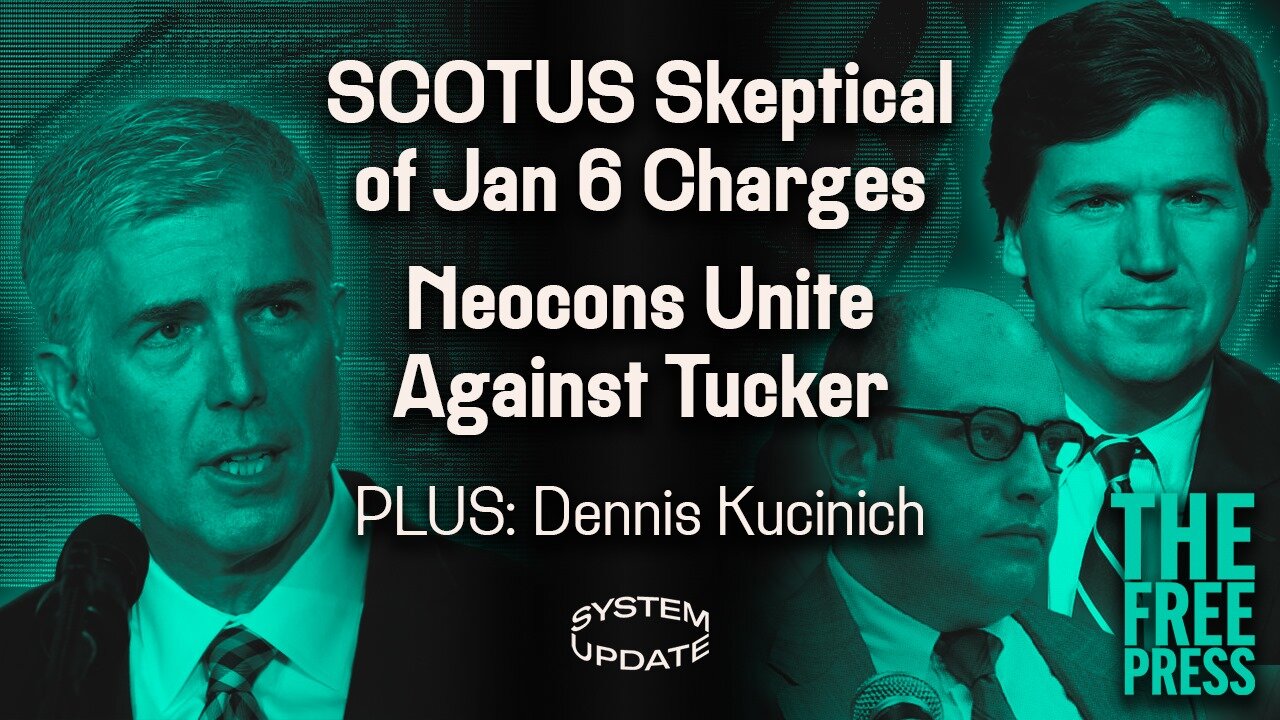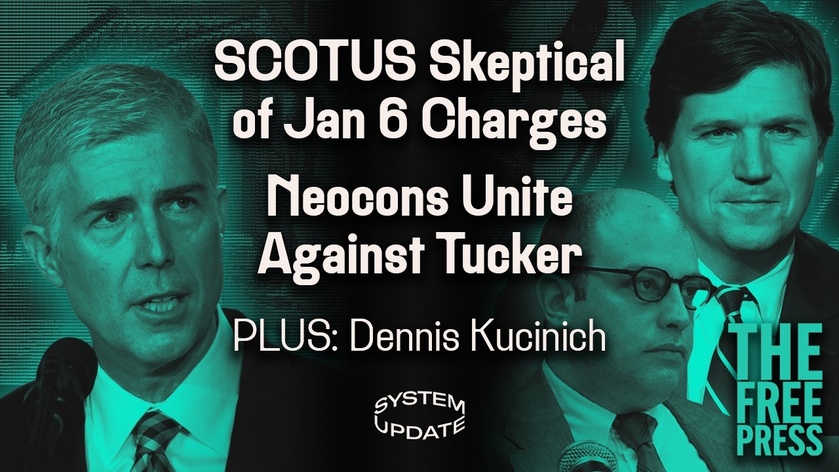Watch the full episode here:

Good evening. It's Tuesday, April 16.
I actually don't believe that, but if we were, I have a good excuse, which is I spent many hours testifying before the Brazilian Congress about the country's censorship regime. So I don't think we are late, but if we were, I have a good excuse.
Now, tonight: immediately after the riot at the Capitol on January 6, the Biden Justice Department was faced with extreme political pressure from Democrats, liberals and journalists—excuse the redundancy—to prosecute the protesters as aggressively as possible. About the protesters who used violence that day against police officers, there's no difficulty in charging them with major felonies, even though the law is applied very selectively and some violent protesters aren't charged at all. It is, of course, a felony to use physical force against the police. The problem for the Justice Department was that only a small minority of the January 6 protesters used violence on that day, while the vast majority of them, by the government's own admission, were nonviolent. But it would have been politically unacceptable for the Justice Department and D.C. prosecutors to only charge most January 6 protesters with misdemeanor counts so they faced a serious dilemma: how do we take nonviolent political protesters or even nonviolent trespassers and convert them into felons? The solution they embraced was legally dubious, to put that mildly, they decided to weaponize a 2002 law that was enacted after the Enron financial scandal, and which was designed simply to fill holes in the law that would have allowed Enron’s accounting firm, Arthur Andersen, to escape justice. They took this law and decided to interpret it in a way that had never previously been interpreted or remotely understood as covering protest at the capital during official proceedings. Lower courts largely accepted this prosecutorial theory, and hundreds of nonviolent January 6 protesters were turned into felons as a result. However, as federal appellate courts began examining this theory more closely, they began to express serious doubts about the validity of this legal interpretation. Today, the Supreme Court held an oral argument on the question, and a majority of the justices were clearly hostile to the main prosecution theory used in the January 6 prosecutions. We will report on what happened at the court today and examine the implications.
Then: When Tucker Carlson was the most popular cable news host on Fox, conservatives were almost all unwilling to criticize him. Indeed, when he was fired from Fox, several Republican congressmen ran to Axios to say how happy they were that he was no longer on Fox because now they could more easily fund wars, including in Ukraine, without the constant pressure from Tucker to encourage people to oppose financing of war—but none of those members of Congress dared to criticize Tucker openly under their own name. Instead, they demanded and were given anonymity.
One of the few changes in Tucker Carlson since he left Fox and became an independent commentator and journalist—I would say the only change—is that he began to express serious doubts about the U.S. policy of financing Israel, paying for its military and arming and funding its various wars. Carlson has even begun to criticize the behavior of Israel itself, and in conservative Republican politics, criticism or questioning of Israel, this foreign country is still the greatest taboo. You have no idea how often I hear people who identify as America First, who insist that we have to finance and support and applaud and never question this foreign country. And so now, when it comes to Tucker Carlson, because of Israel, the gloves are off, just as they are for Candace Owens over the same issue, particularly in neocon journals and neocon writers who are now not just expressing disagreement with Carlson over Israel but are trying to destroy his reputation entirely. We’ll examine the latest article by the neocon Eli Wallach, published in Bari Weiss's The Free Press, to illustrate how and why this is being done.
Finally: Dennis Kucinich has long been one of the most interesting and heterodox elected officials in the country at the age of 31. He was elected to be mayor of Cleveland, Ohio and then he represented that state's 10th congressional district for the next 16 years, from 1997 until 2013. He twice ran for president as a member of the Democratic Party, in both 2004 and 2008, and he expressed harsh criticisms of both of the eventual nominees, John Kerry and Barack Obama. Kucinich is now back after a brief stint as campaign manager for RFK, Jr's presidential campaign. He is now running as an independent against the first-term congressman, the Republican Max Miller. Kucinich has always had interesting things to say on issues ranging from law to civil liberties and the corrupt, bipartisan Washington system, and we are excited to speak with him this evening. We are sure that the interview will be at least engaging, even if various things he says you don't agree with.
For now, welcome to a new episode of System Update, starting right now.






















